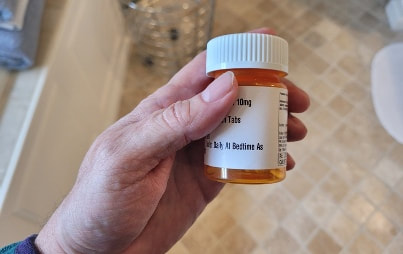The Opioid Crisis isn’t new. Not hardly. Overuse and abuse of strong pain killers like Percocet or Vicodin has been an issue for back pain and neck pain patients for more than three decades.But, because of national recognition, legislation, and some high-profile lawsuits, the government – and as a result your pharmacist – have put many changes in place that affect patients with back pain and neck pain who legitimately need those medications. For doctors treating back and neck pain there is no way around it: while the most satisfying and rewarding part of our job is finding and correcting problems that cause pain, we still have to deal with the actual pain our patients experience before, during, and after surgery or other treatment. As many spine fusion patients can’t take anti-inflammatory medications, we depend on opioid medications to get patients through the first two to four weeks of recovery. That part of post-operative care hasn’t gotten easier as many of the promising “pain killers” of recent years have turned out to be real problems when they get into the wrong hands. Pharmacies, some of whom have been involved in large lawsuits, have been tasked by law to decide how much medication a patient can have, regardless of what your surgeon or physician has prescribed. In Ohio pharmacies have adopted the legislated practice of providing no more than a seven day supply of any narcotic/opioid medication, limiting the daily dose, and cannot provide refills. These rules apply to any patient being treated for “acute pain”, whether that acute pain is the result of an ankle sprain or a spinal fusion. State-wide surveillance systems monitor exactly how much of any “scheduled” medication every patient receives, how often, prescribed by whom, and picked up where. This report is “required reading” literally, for anyone writing you a pain prescription! There are three things we know about opioid pain medications that can’t be argued: 1. Long-term pain pills are a terrible treatment for ongoing musculoskeletal pain. 2. The longer you take pain pills, the less affective they are, the more pain you feel, and the higher the doses you need to get any relief. 3. After a while, your body will just need the pain pills, whether you have a “pain generator” or not. They are all addicting. The laws on dispensing opioid medications are pretty hard and fast, and the penalties to your doctor or pharmacist are severe, so there is no wiggle-room here:
How can you avoid getting your pain medication prescriptions all messed up?
Finally, its important to know that – when used appropriately – the most common opioid pain medications are safe and effective. The two most common, hydrocodone (Norco; Vicodin) and oxycodone (Percocet, Roxicet), can be taken over the short-term with little risk of problems. Recent studies have shown that, while these two drugs are the “most commonly abused”, they are also among the “least addictive” of the opioid pain medications we can use for acute pain. The reason they are recognized as being such a problem? – they are far and away the most commonly prescribed and readily available in the community. That means that – after surgery or a severe injury – you needn’t be afraid of taking prescribed medication to make your pain manageable and make it possible to get up and around and rest comfortably at night. Your pharmacist will make sure you are not getting too much. When your pain calms down, take less. When your pain is tolerable, stop using them altogether. And never share medications with another person, leave your medication where someone else can get at it, or leave it where children or visitors might find it. Thanks for reading! Feel free to Like and Share this content and let me know what other questions you might have!
1 Comment
9/13/2023 06:28:40 am
Looking for effective Knee Joint Pain Treatment? Discover various remedies, therapies, and expert advice to alleviate knee discomfort. Explore innovative approaches to manage and relieve knee joint pain. Your journey to pain-free knees starts here
Reply
Leave a Reply. |
Details
AuthorI'm Dr. Rob McLain. I've been taking care of back and neck pain patients for more than 30 years. I'm a spine surgeon. But one of my most important jobs is... Archives
January 2024
Categories |



 RSS Feed
RSS Feed